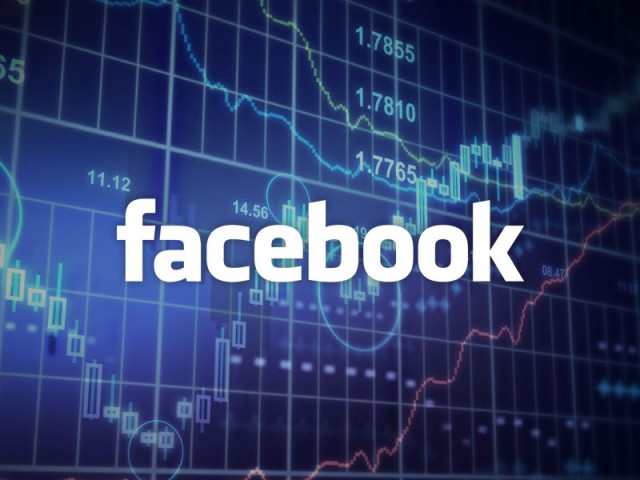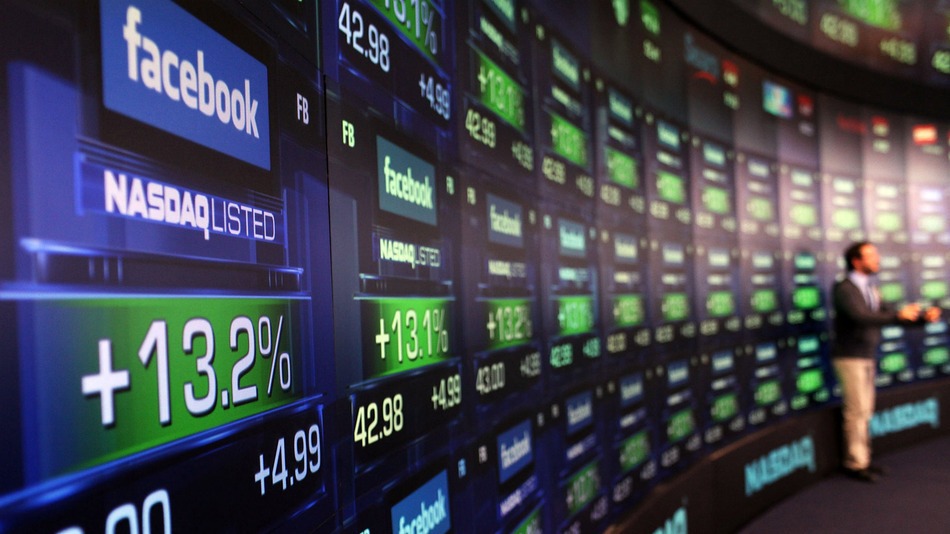There are many investors who have yet to take the plunge with Facebook stock. This technology stock started out at $38 per share on 18 May 2012, but was soon trading at $17.55 months after the IPO. More recently, the price of Facebook stock has increased to $93.67 on the NASDAQ (mid-August 2015). Like so many other technology stocks, the seesawing prices raise concerns with investors. That we are currently witnessing the inflated effect of technology stocks should not be lost on the fact that the bubble may burst at any time. Facebook’s trajectory has been positive since inception, trending higher since 2014, and trading near its maximum high. At present prices, the company’s market cap exceeds $264 billion, and its price-earnings ratio is pegged at 98.36.
But is Facebook stock worth investing in?
Investors like to plough their money into assets that appreciate in value. Facebook has done precisely that in the three years since it listed on the NASDAQ. The business model of this technology stock is primarily driven by advertising. Its strategic approach is advertising based and owing to its massive user base, the appeal of this social media platform to advertisers is immense. There are some concerns about what would happen in the event of a downswing in economic fortunes. As we already know from the 2008 global financial crisis, marketing budgets were slashed, advertising revenues plunged and sales dramatically dropped off. Will the same thing happen to Facebook’s advertising business in the future? Those who are wondering whether Facebook will survive into the next decade have listed several potential reasons for its demise:
- Facebook may lose favour with its audience if something better comes along
- Millennials and other key audiences for Facebook have diversified their interests in multiple social media sites
Regardless, the technology that drives Facebook’s success is so innovative that it is difficult to give up years of communication, photo albums, multimedia content etc. For these reasons, the longevity of Facebook is likely to survive even the most oppressive storms in the technology sector.
Market sentiment drives stock prices
Market fortunes are not driven by fundamentals – they are driven by sentiment. Right now, most everybody is bullish on Facebook as can be seen by the huge number of call options with those who trade binary options contracts at leading brokers. People are going long on Facebook because they believe in the company’s appeal and its profitability. But like any other technology stock, change is imminent in the industry. While Facebook appears to have solidified its market share in the social media realm, anything is possible. If we go on earnings figures alone, then Facebook is faring tremendously well, generating 50% year-on-year revenues vis-a-vis the strong USD. With revenue figures in excess of $4 billion from 2013 to 2014, the stock appears headed for the stratosphere.
And when you look at the number of MAUs (monthly active users), Facebook has made tremendous strides and there are now in excess of 1.3 billion people using the social networking site per month. On a day-to-day basis, the DAUs (daily active users) number 968 million people. This means that it has become an inextricable part of a huge number of people’s lives. In terms of growth, the year-on-year figures for Facebook are certainly impressive. In line with mobile Internet access, Facebook has climbed on the bandwagon and now reports that 75% of all revenues generated by advertisements come from mobile ads. This is up from 62% a year previously. This marginal increase is less impressive, and it shows that there is a great degree of concentration on the mobile market.
Is Facebook 30% overvalued?
Facebook may not look like such an attractive proposition if one considers the cost of advertisements – these rose by 219% in Q2, 2015 from the same period a year ago. The average revenue per user for that period was $2.76, up from $2.24 year-on-year. The number of ad impressions has dropped off precipitously – down 55%. All in all, it looks like Facebook is making money at a declining rate. The company’s net income was 10% lower at $719 million, and while substantial, it was lower than the year before. It may prove foolhardy to focus only on Facebook in terms of its advertising revenue – the company is venturing out into different directions and its flair for innovation is bound to pay dividends. The company appears to be reasonably well valued, and its name certainly adds a few percentage points to the stock price. A fair value price for Facebook stock is anywhere between $60 and $70, making it 30% overvalued at present.
Encouraging signs for investors on the horizon
According to industry analysts, Facebook’s expenses will grow upwards of 55% this year, with an expected Q2 expense growth of $2.77 billion (+82%). The reason for these increased expenditures is Facebook’s desire to branch out into innovative new industries and start monetising them. These include the WhatsApp Instant Messenger service and the VR (Virtual Reality) headset manufacturer – Oculus Rift. Presently the messenger service that Facebook owns – and is not making any money off – has 700 million subscribers. Additional revenue streams are going to be generated on Instagram and tremendous investment is going to be ploughed into these tentacles of Facebook. For the year, the stock has risen 22% – 23% and as of June 30, 2015, the number of monthly active users hit a peak of 1.49 billion. But what is even more impressive than the sheer size of the user base is the level of engagement that these users have with Facebook. Stockholders received net income of $0.25 per share, down $0.05 cents per share from 2014.





